Resveratrol is a stilbene, a natural polyphenol, and research shows it has antioxidant, anti-fungal, anti-viral and anti-inflammatory properties, promotes heart health, slows macular degeneration, increases sirtuin production promoting longevity, protects against Alzheimer's, dementia and Type-2 Diabetes, and has significant anti-cancer properties; here's a summary of the many health benefits of resveratrol.
What is Resveratrol?
Resveratrol (3,4’,5-trihydroxy-stilbene) is a natural polyphenol found in both trans- and cis- forms. There is a lot of excitement (and thus research and web pages) about the trans- form, but less is known about the benefits of the cis- form. Both forms are found in the skins of a number of fruits and plants. Resveratrol is also a phytoalexin, produced by certain fruits to defend the fruit cells from attack by fungi and moulds.
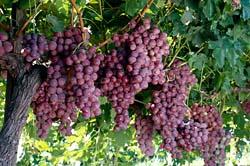 Sources of resveratrol - The largest concentrations of resveratrol are found in red grape skins with only 10 per cent of these levels occurring in blueberries and bilberries and even smaller amounts in raspberries and blackberries. The amount of resveratrol depends on the type of grape, the thickness of the skin, the soil upon which it grows and the weather conditions. There is some evidence that the thicker skiined Muscadine Grapes contain the most resveratrol.
Sources of resveratrol - The largest concentrations of resveratrol are found in red grape skins with only 10 per cent of these levels occurring in blueberries and bilberries and even smaller amounts in raspberries and blackberries. The amount of resveratrol depends on the type of grape, the thickness of the skin, the soil upon which it grows and the weather conditions. There is some evidence that the thicker skiined Muscadine Grapes contain the most resveratrol.
Other sources include Japanese knotweed, pistachio nuts, peanuts, cocoa and dark chocolate.
Red wine and resveratrol - Red wine is produced with the wine being left to ferment on the grape skins and seeds, and certain types of wine - particularly from damper areas of the globe where there is more mould, can contain up to 3 mg of resveratrol per litre. White wine and champagne are produced having separated off the skins and so contain little resveratrol. Worse, the use of modern pesticides and fungicides has reduced the need for this defensive compound (resveratrol) in the grape skin because it seems to be produced in response to the attack. So, you get less resveratrol and a pesticide-contaminated wine. This is why organic red wines are becoming more popular.
Resveratrol has many health-promoting actions
Resveratrol is a member of a class of natural compounds called polyphenols. There are over 500 polyphenols existing in nature in the Mediterranean Diet - they are the top foods for health (1) and they lie at the heart of the Rainbow Diet, each exhibiting significant health benefits. Experts already claim resveratrol can help fight cancer from brain tumours to colon, prostate cancers and many more. Perhaps the most research cancer is breast cancer where resveratrol has efficacy against tumor cell proliferation, metastasis, epigenetic alterations and induces apoptosis as well as being a chemo-sensitiser and an aromatase inhibitor. It is also a phytoestrogen and can block oestradiol from receptor sites and it is effective as a cancer stem cell therapy (2). Interestingly, there is also research showing that it overcomes chemosensitivity in HER-2 breast cancer (3).
Resveratrol also has research on its benefits with Dementia and Alzheimer’s - high dose resveratrol may stabilise early stage disease (4) , heart disease, diabetes, eyesight and weight loss. Eating grapes has also been shown to lower cholesterol (5), and drinking red wine improves your gut bacteria and improves the immune system (6).
When you hear Doctors, dietitians and nurses, for example, saying that there is no evidence that supplements can improve your health, after reading this report, you will know they haven't bothered to look at any research at all.
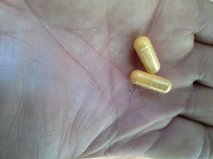
Go to: Polyphenols - top foods for health
Polyphenols are found in herbs like rosemary and sage, green tea (EGCG), spices (turmeric), pulses, beans, fruits from plus to cherries. .
The anti-cancer benefits of resveratrol
i) Researchers at MD Anderson believe resveratrol has a mutitude of benefits against many cancers - They believe resveratrol can be a potent force as a preventive and chemotherapy agent. They concluded that it suppresses cell proliferation in a wide variety of tumour cells, including lymphoid and myeloid cancers; multiple myeloma; cancers of the breast, prostate, stomach, colon, pancreas, and thyroid; melanoma; head and neck squamous cell carcinoma; ovarian carcinoma; and cervical carcinoma. They have found it to work at a number of levels, for example suppressing enzyme and protein production, suppressing cytokine production, suppressing Cox-2 and the formation of bad eicosanoids, stimulating glutathione, and blocking various carcinogenic processes. It seems to concentrate in the liver and kidneys and is converted to a sulphated form which then blocks the process of cancer at a number of stages. They have even found it to have therapeutic effects. It can block the damaging effects of a linoleic acid-rich diet. MD Anderson have concluded that it has a huge potential for fighting cancer and it can also improve the success rates of chemotherapy, appearing safe even in high doses.
ii) Resveratrol and inflammation in cancer - Memorial Sloan-Kettering conducted research on the inflammatory effects on cells leading to cancer. It is widely known that an enzyme, COX-2, lies behind the stimulation of localised hormones (eicosanoids) causing inflammation, the precursor to cancer. In the research, Resveratrol completely turned off the COX-2 driver. MD Anderson’s studies have shown this same anti-inflammatory benefit too. Plus, after conversion in the liver to a sulphated form, resveratrol can attack several different steps in the cancer process even killing cancer cells.
iii) Resveratrol and Salvestrols - the work of Professor Gerry Potter
The excitement continued when it was found how resveratrol could work directly as an anti-cancer agent. It converts to a pro-drug. Resveratrol has been shown to be attacked by an enzyme unique to pre-cancerous and cancer cells - the cytochrome P450 enzyme, CYP 1B1. The converted compound is a toxic substance - piceatannol - which brings about the death of the surrounding cell (7). Much work has been added to this by Professors Potter and Burke. They argued that there must be many compounds that can act like this in nature - they called them Salvestrols.
iv) Resveratrol and cancer stem cells - Cancer Stem Cells lie at the heart of all tumours and there is currently no chermotherapy drug that can wipe them out, only killing normal cancer cells and shrinking the tumour. However National Cancer Institute researchers commisioned by Dr. Young S. Kim head of Cancer and Nutrition at the NCI showed certain bioactive natural compounds like curcumin, piperine, resveratrol, EGCG, sulphoraphanes and more, could stop any re-growth.
According to Pandy PR et al (8) resveratrol has an anti-tumour effect with various types of cancer stem cells, being able to induce cancer cell death (apoptosis) in the cancer stem-like cells through altering the cells’ death coding.
Several studies have confirmed that cancer stem cells can proliferate and self-renew extensively due to their ability to generate anti-cell death and even drug-resistant proteins. Research by Shankar S. Nall D, Tang S-N, Meeker D, Passarini J et all (2011) showed resveratrol inhibits human pancreatic stem cells and concluded resveratrol could be used in the management of pancreatic cancer.
v) Resveratrol and Prostate cancer - According to the American Association of Cancer Research, resveratrol may be an important agent for prostate cancer treatment (Dept of Urology and Biochemistry, Mayo Clinic, 1999). Resveratrol inhibits androgen action and represses certain androgen genes., so it inhibits androgen-stimulated cell growth and gene expression.
There were other studies showing that resveratrol could work with the immune system to inhibit blood supply to prostate tumours (Greehey Children’s Cancer Research Institute, San Antonio, Texas)
The University of Texas produced research results with prostate cancer showing that three anti-cancer stem cell natural compounds - Ursolic acid (from Holy Basil of pistachio nuts), curcumin and resveratrol, could inhibit prostate cancer cell growth by restricting glutamate consumption in the prostate cells.
vi) Resveratrol and breast cancer - the New York Medical Collegein Valhalla) published research in 2011 showing resveratrol, and a metabolite triacetyl-resveratrol, can inhibit breast cancer, whether oestrogen positive or negative (International Journal of Cancer Jan 2011)
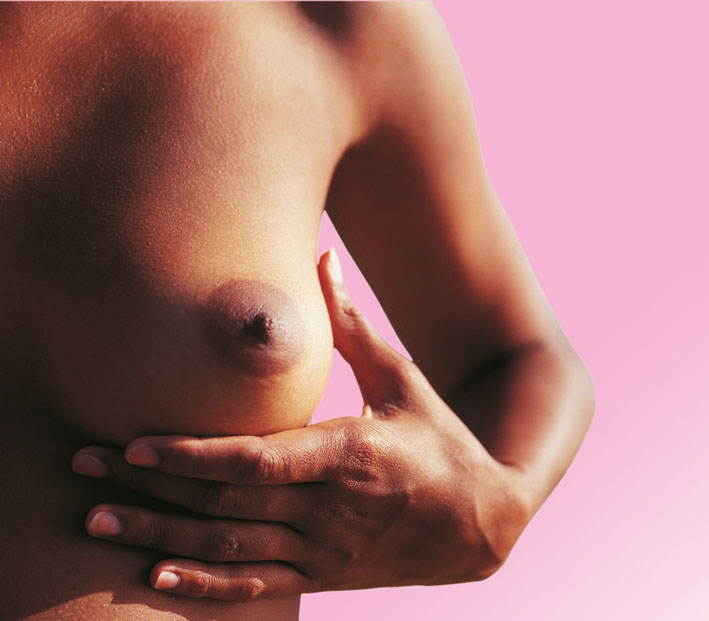
Several studies show that resveratrol’s action seems to be dose and duration dependent. At low doses it may encourage adult stem cells and cancer stem cells to re-grow but at higher doses, resveratrol inhibits cancer stem cell renewal.
A combination of red grape polyphenols at relatively low doses can be effective at preventing breast cancer from progressing to become an advanced disease, according to a study by S. F. Dharmawardhane of Universidad Central del Caribe School of Medicine in Bayamon, Puerto Rico (pub.Translational Oncology). The research then looked at the use of these polyphenols and showed they enhanced drug action against breast cancer: RQC (resveratrol, quercetin and catechin) treatment inhibits breast cancer progression and may potentiate anti-EGFR therapy by inhibition of Akt/mTOR signaling. The research even recommended supplementation.
vii) Resveratol and brain cancer - In studies with breast cancer and astrocytoma (brain tumour) cells, resveratrol has been shown to induce cancer cell death (apoptosis) via p53 pathways. P53 is the gene that repairs DNA. (Laux MT, Cornell University)
In studies with resveratrol and curcumin (Anticancer Research 2004 March), these two natural compounds seem to stop tumour cell growth and induce cancer cell death in neuroblastomas by activating the p53 gene pathway.
In a study of gliomas (Brain tumours) using rats (Clin Cancer Res. 2004; Mar) a concentration of resveratrol at 40 mgs per kilogram of body weight per day increased survival rate, by exerting an anti-tumour effect and an anti-vascular effect. It was concluded that the natural compound is a potent chemotherapy agent.
In studies on Neuroblastomas (brain tumours) in mice resveratrol appears to stop cellular proliferation, and alters the cellular structure of the tumour cells leading to cell death. It exerted clear ant-tumour effects (Surgery, 2004, July)
viii) Resveratrol can improve chemotherapy and radiotherapy success - According to various M D Anderson studies, Resveratrol improves chemotherapy success and reduces side-effects; it also increases glutathione levels which help oxygenate and restore healthy cells. (Oxygen kills cancer cells). The action in improving chemotherapy, has been repeated with Radiotherapy at the University of Missouri. Resveratrol has been shown also to increase levels of two naturally occurring anti-cancer proteins (perforin and granzyme B) throughout the body, aiding the body’s fight against any cancer but particularly prostate cancer.
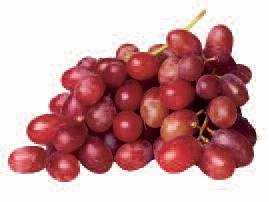
ix) Resveratrol can help repair the p53 gene - Other studies have shown Resveratrol improved survival in gliomas. breast and prostate cancer patients, because it repaired the p53 gene which in turn repaired DNA and caused cancer cell death. It seems to have anti-tumour and anti-vascular proliferation effects (tumours need their own blood supplty and it can stop this). And it stops metastatic action. So it doesn’t do much then?!
Research has also shown a strong synergistic effect with curcumin and quercitin in anti-cancer studies.
How much resveratrol should you take?
A glass of red wine is going to give you about 1 mg (yes, that's all) of resveratrol. Red grape juice is actually far less, maybe 0.1 mg for a good size glass of juice. A small bowl of red grapes will give you about 1 mg too. Research studies most commonly use concentrations of the compound around 40-60mg, but work on high dose resveratrol went up to 2000mg per day with Alzheimer's patients, and with type-2 diabetes, there was significant extra benefits in levels over 100mg per day. Supplements frequently use resveratrol from plants and herbs other than grape skins, notably Polygorum Cuspidatum (Japanese Knotweed).
Health Benefits of Resveratrol
i) Resveratrol inhibits yeast and viral infections
Not surprisingly, since resveratrol's prime function in nature is to protect the sugary flesh of the fruit against moulds, fungi and yeasts, a study in Arch Pharm Res. 2005 May;28(5):557 found potent anti-fungal activity in the human body with resveratrol. This included destruction of Candida albicans.
Another study showed that administering resveratrol immediately after influenza infection, stopped the virus from replicating by altering certain factors in the potential host cells of the human body (Journal of Infectious Diseases May, 2005).
ii) Reveratrol reduces Inflammation in the body
A study in the American Journal of Physiology (Lung Cell Mol Physiol. 2004 Jun 4) using resveratrol in conjunction with quercitin showed that they stopped the enzyme production, particularly of cytokines, that could lead to inflammation in cells. Importantly they did not interfere with the simultaneous activity of Tamoxifen, nor did Tamoxifen interfere with resveratrol activity, showing they could be taken simultaneously. This has implications for inflammatory diseases and particularly cancers like breast cancer.
 If you are already looking to buy Resveratrol, why not see what OurNaturalSelection has to offer? Click here for the Natural Selection "Product of Choice".
If you are already looking to buy Resveratrol, why not see what OurNaturalSelection has to offer? Click here for the Natural Selection "Product of Choice".
iii) Resveratrol increases overall health and longevity
It has long been known that calorie restriction and fasting increased longevity. Observations on the Belgians and the Norwegians in the second War to research with rats show increased longevity and better health. Research studies with rats show that calorie deprivation results in increased longevity: A 10-30 per cent reduction can almost double their life span. Harvard Researchers (icon 2. 2007) have even released a video explaining how cutting the food intake of any organism by 30-40 per cent can increase longevity.
There are two things you need to know:
Calorie restriction, and especially fasting for more than 24 hours, promotes the production of sirtuins in the body.
Resveratrol can promote the production of sirtuins.
i) The Work of Harvard Medical School
Harvard Medical School have conducted a large amount of research on calorie restriction and shownit can increase longevity by stimulating the survival defence enzyme Sir, which in turn stimulates the production of hormones called sirtuins, survival hormones produced when animals are on restricted calorie diets. And in turn, sirtuins improved insulin sensitivity and reduced IGF-1 levels, increased mitochondrial numbers and activity, and improved motor function. Moreover sirtuins negated the detrimental effects of a high-calorie diet at a genetic level.
However, be warned - the dosage used was 24 mg per kilogram of body weight equivalent to 1000 bottles per day of red wine!
A most important study from the NIA, Harvard and the 13 worldwide centres showed that taking resveratrol seems keep you living younger, longer! And importantly for the overweight and obese, it seems to cancel out the negative effects of a poor diet as the benefits were equal whether the mice were on a normal diet or a calorie-rich one!!
Specific conclusions included:
- Resveratrol supplementation improves cardiovascular health and reduces fatty changes in the liver.
- Resveratrol supplementation prevented age- and obesity-related decline in cardiovascular function.
- Resveratrol supplementation significantly lowered total cholesterol and inflammation.
- Resveratrol supplementation increased the functioning of blood vessels significantly.
- Resveratrol supplementation seemed to result in better bone health
- Resveratrol supplementation reduced cataract formation, and enhanced balance and motor coordination.
ii) The work of Professor Valter D. Longo
Longo is a biogerontologist and cell biologist known for his work on longevity, calorie restriction and fasting. Various studies from his team have shown
Calorie Restriction and fasting lower blood sugar, lower blood insulin, reduce stress and inflammation, kill weak white blood cells (which are replaced when people return to eating), and even stop cancer progression.
An important ’added discovery’ is that calorie restriction increases the body’s stress response, increasing survival hormones and, along with this, the body’s ability to repair DNA and heighten cellular efficiency.
Drugs based on resveratrol are being studied for both anti-aging and type-2 diabetes. But whilst Pharmaceutical companies are working on drugs to increase your longevity, your diabetes and cancer risks, your eat-to-beat cancer strategy can be improved by the knowledge that sirutins are crucial and they can be significantly stimulated by consuming resveratrol, or by restricting calories, or fasting for 3-5 days.
iii) The work of Professor David Sinclair - live younger, longer?
Dr. David Sinclair is an Australian Professor at Harvard whose team in March 2017 announced that their research had shown they could repair DNA damaged by radiation or old age in mice. Obviously, DNA damage is what causes illness as we age and so these claims are serious! High levels of a compound called NAD protect our DNA, but the levels decline with age. Sinclair's work has been following the link between sirtuins, resveratrol, and an NAD-boosting compound called nicotinamide mononucleotide, or NMN.
Sinclair himself follows an antiaging diet and exercise programme and takes trans-resveratrol daily. NMN, taken with resveratrol is currently in human Clinical Trials.
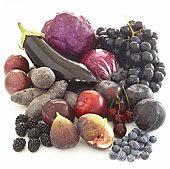
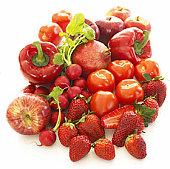
Resveratrol, Dementia and Alzheimer's
One of the biggest problems in Alzheimer's is the build up of beta-amyloid peptides which destroy brain cells. A moderate red wine consumption has been found to correlate with lowered risk of Alzheimer's. According to the University of Basel in a study on cell cultures resveratrol increases cell viability through offering neuro-protective and anti-oxidative benefits by enhancing the free-radical scavenger glutathione.
In a 2015 Nationwide Study in Canada (presented at the Alzheimer's Annual Conference; and in the journal Neurology), long-term, high dose resveratrol had slowed or stopped the early to mid-stages of the disease in patients. Normally a compound called Abeta 40 worsens progressively in Dementia but resveratrol stabilised it. There are several studies on this.
Go to: High dose resveratrol slows and even stops mild to moderate Dementia
Resveratrol and Macular Degeneration
A disease that is increasingly common in the elderly, macular degeneration seems to be caused by the action of free radicals on the retinal repair cells, Research from the Food Group at Ohio State University (R. King) has shown that resveratrol can combat this. Oxidative stress and macular inflammation play a key role in age related ocular diseases. There is a review of resveratrol and ocular diseases here.
Resveratrol and Heart Disease
The World Health Organisation has suggested that resveratrol can reduce cardiovascular risks by up to 40 per cent. It blocks platelet stickiness by blocking the aggregating factors, it prevents oxidation of Low Density Lipoprotein (LDL) and reduces tri-glyceride and cholesterol levels. Most importantly, research suggests it appears to reduce tension levels and can relax and dilate the arteries through increasing NO levels.
 If you are already thinking of buying Resveratrol Click here to see what Natural Selection has in store.
If you are already thinking of buying Resveratrol Click here to see what Natural Selection has in store.
Resveratrol and Diabetes
In a meta-analysis of 9 randomised controlled studies, resveratrol significantly improved fasting blood sugar levels and insulin levels in people with type-2 diabetes. It was also seen to reduce insulin resistance, and both systolic and diastolic blood pressure. In particular there was a significant difference between those people supplementing at levels greater than 100 mg per day, with those supplementing below that level, and greater benefits were observed at the higher level.
The Rainbow Diet
Not surprisingly, many health experts see resveratrol as an important contributor to the protective and corrective effects of the colourful, Mediterranean Diet and is a key corrective component in the French Paradox - namely that consuming high fats can be good for you (providing they're the right fats). We have called this the Rainbow Diet, since 2005 when we wrote a book quite clearly 10 years ahead of its time:

At Last - the definitive, research-based book on how to build a diet to help beat cancer, live longer and avoid the 11 chronic illnesses that plague the human race at the moment.
Read about the Rainbow Diet here 
* * * * * * * * * * * * * *
Other articles of interest:
Go to: Grape seed extract
Go to: Turmeric or curcumin
Go to: Resveratrol as a drug in Concentrate
* * * * * * * * * * * * * *
References:
1. Polyphenols - top foods for health - https://www.canceractive.com/article/eat-yourself%20healthy%20%20polyphenols%20and%20cancer
2. Resveratrol for breast cancer prevention and therapy: Preclinical evidence and molecular mechanisms; Dona Sinha et al; Semin Cancer Biol; 2016 Oct;40-41:209-232.
3. Resveratrol chemosensitizes HER-2-overexpressing breast cancer cells to docetaxel chemoresistance by inhibiting docetaxel-mediated activation of HER-2–Akt axis; Cell Death Discov. 2015; 1: 15061. Published online 2015 Dec 7. doi: 10.1038/cddiscovery.2015.61
4 High Dose Resveratrol may stabilse early stage Dementia and Alzheimer's - https://chriswoollamshealthwatch.com/your-illness/alzheimers-and-dementia/high-dose-resveratrol-and-algheimers/
5. Eating grapes lowers cholesterol - https://chriswoollamshealthwatch.com/your-illness/cardiovascular-disease/eating-grapes-lowers-cholesterol/
6. Red wine boosts friendly gut bacteria and immune system - https://chriswoollamshealthwatch.com/your-illness/cardiovascular-disease/blood-pressure/red-wine-increases-friendly-gut-bacteria/
7. The cancer preventative agent resveratrol is converted to the anticancer agent piceatannol by the cytochrome P450 enzyme CYP1B1 - Nature and Br J Cancer, 2002; 86: 774-778
8. Resveratrol suppresses growth of cancer stem-like cells - Breast Cancer Res Treat. 2011 Nov 30 (2) 387-98
*********
N.B. Please be clear: At CANCERactive we do not consider the above compound to be a cure for cancer, despite what the research says or experts doing the research may claim. The above, is an article on the compound from published research and expert opinion in the public domain. At CANCERactive we do not believe that any single compound (drug, vitamin, whatever) is a cure for cancer. We believe that people can significantly increase their personal odds of survival by building an Integrated Programme of treatments. Equally, cancer prevention is best practiced through a width of measures.